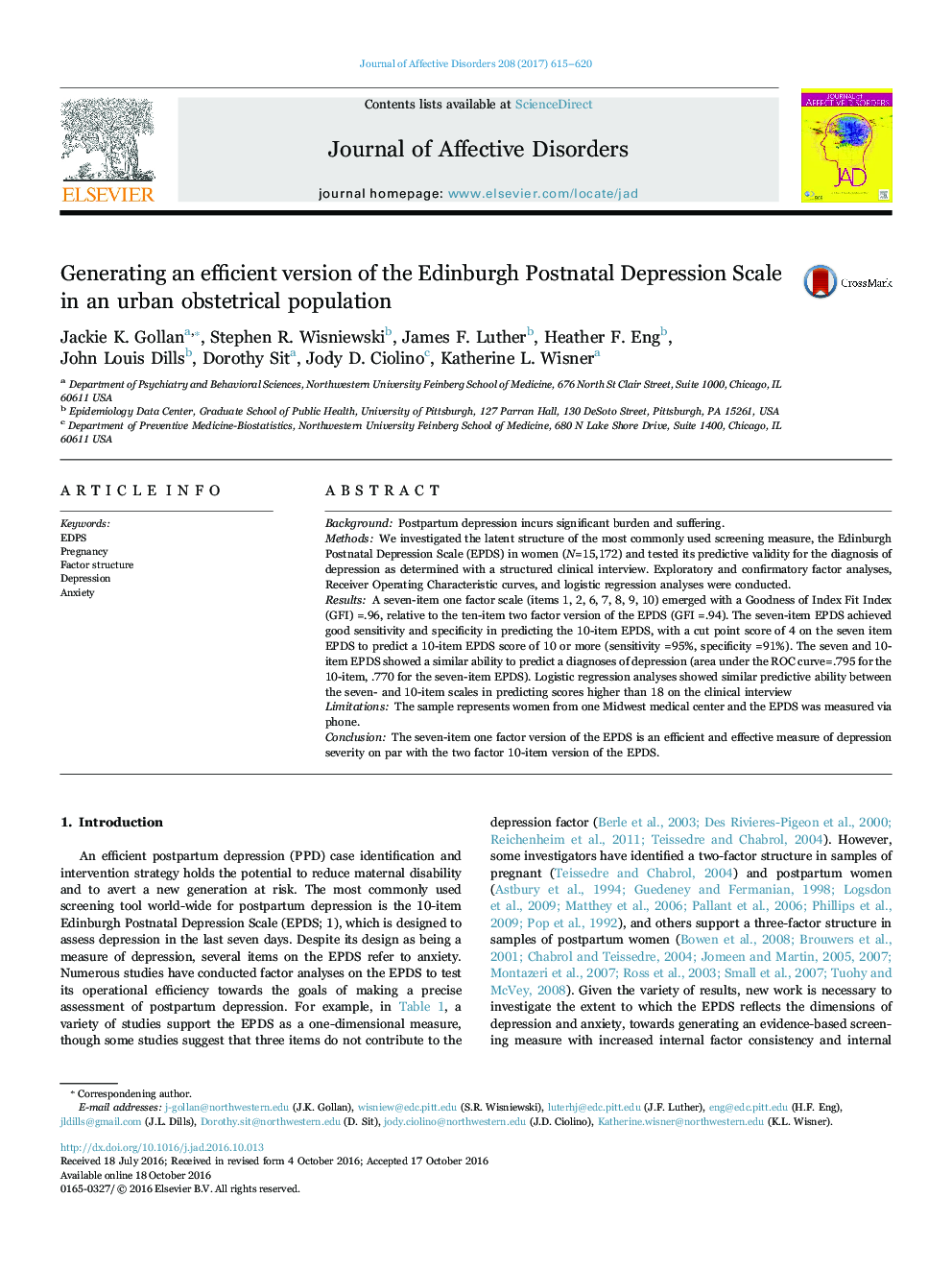| Article ID | Journal | Published Year | Pages | File Type |
|---|---|---|---|---|
| 5722135 | Journal of Affective Disorders | 2017 | 6 Pages |
â¢We tested the internal factor consistency and internal reliability of the EPDS.â¢Our results show a seven-item one factor scale in predicting scores of 18 or higher on a clinical interview.â¢The seven-item one factor version of the EPDS is an efficient measure of depression severity.
BackgroundPostpartum depression incurs significant burden and suffering.MethodsWe investigated the latent structure of the most commonly used screening measure, the Edinburgh Postnatal Depression Scale (EPDS) in women (N=15,172) and tested its predictive validity for the diagnosis of depression as determined with a structured clinical interview. Exploratory and confirmatory factor analyses, Receiver Operating Characteristic curves, and logistic regression analyses were conducted.ResultsA seven-item one factor scale (items 1, 2, 6, 7, 8, 9, 10) emerged with a Goodness of Index Fit Index (GFI) =.96, relative to the ten-item two factor version of the EPDS (GFI =.94). The seven-item EPDS achieved good sensitivity and specificity in predicting the 10-item EPDS, with a cut point score of 4 on the seven item EPDS to predict a 10-item EPDS score of 10 or more (sensitivity =95%, specificity =91%). The seven and 10-item EPDS showed a similar ability to predict a diagnoses of depression (area under the ROC curve=.795 for the 10-item, .770 for the seven-item EPDS). Logistic regression analyses showed similar predictive ability between the seven- and 10-item scales in predicting scores higher than 18 on the clinical interviewLimitationsThe sample represents women from one Midwest medical center and the EPDS was measured via phone.ConclusionThe seven-item one factor version of the EPDS is an efficient and effective measure of depression severity on par with the two factor 10-item version of the EPDS.
